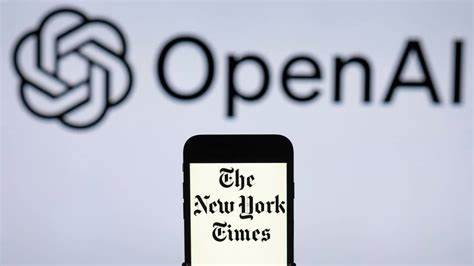AI Giant OpenAI has accused the New York Times of paying someone to manipulate ChatGPT, an artificial intelligence tool, to reproduce large portions of the newspaper's articles. This accusation came in response to a copyright infringement lawsuit filed by the Times, which OpenAI denies. The company claimed that a third-party hired by the Times exploited a "bug" in ChatGPT, which OpenAI says they are committed to fixing.

OpenAI emphasized that ChatGPT is not intended to replace a subscription to the New York Times and cannot be used to access Times articles freely. They argued that using deceptive prompts to generate Times articles violates ChatGPT's terms of use.
The document stated that it took the Times "tens of thousands of attempts" to generate copyrighted articles, but did not provide details about the individual hired by the Times.
The New York Times disputed OpenAI's claims, stating that they were merely using OpenAI's products to investigate potential copyright infringement of their works.
Ian Crosby, lead counsel for the Times, dismissed OpenAI's allegations and emphasized that the core complaint of the lawsuit remains unchallenged: that ChatGPT was trained on copyrighted New York Times stories.
The Times' lawsuit presented numerous examples of prompts used to generate significant portions of text from Times articles. One example highlighted how ChatGPT was prompted to bypass the newspaper's paywall, which OpenAI's filing did not address.
The New York Times filed a copyright infringement lawsuit against OpenAI seeking billions of dollars in damages. The lawsuit included over 100 examples of ChatGPT reproducing paragraphs from Times articles.
OpenAI is facing multiple lawsuits, including one from the Authors Guild for allegedly training ChatGPT on copyrighted works, and another from non-fiction writers for similar claims.









